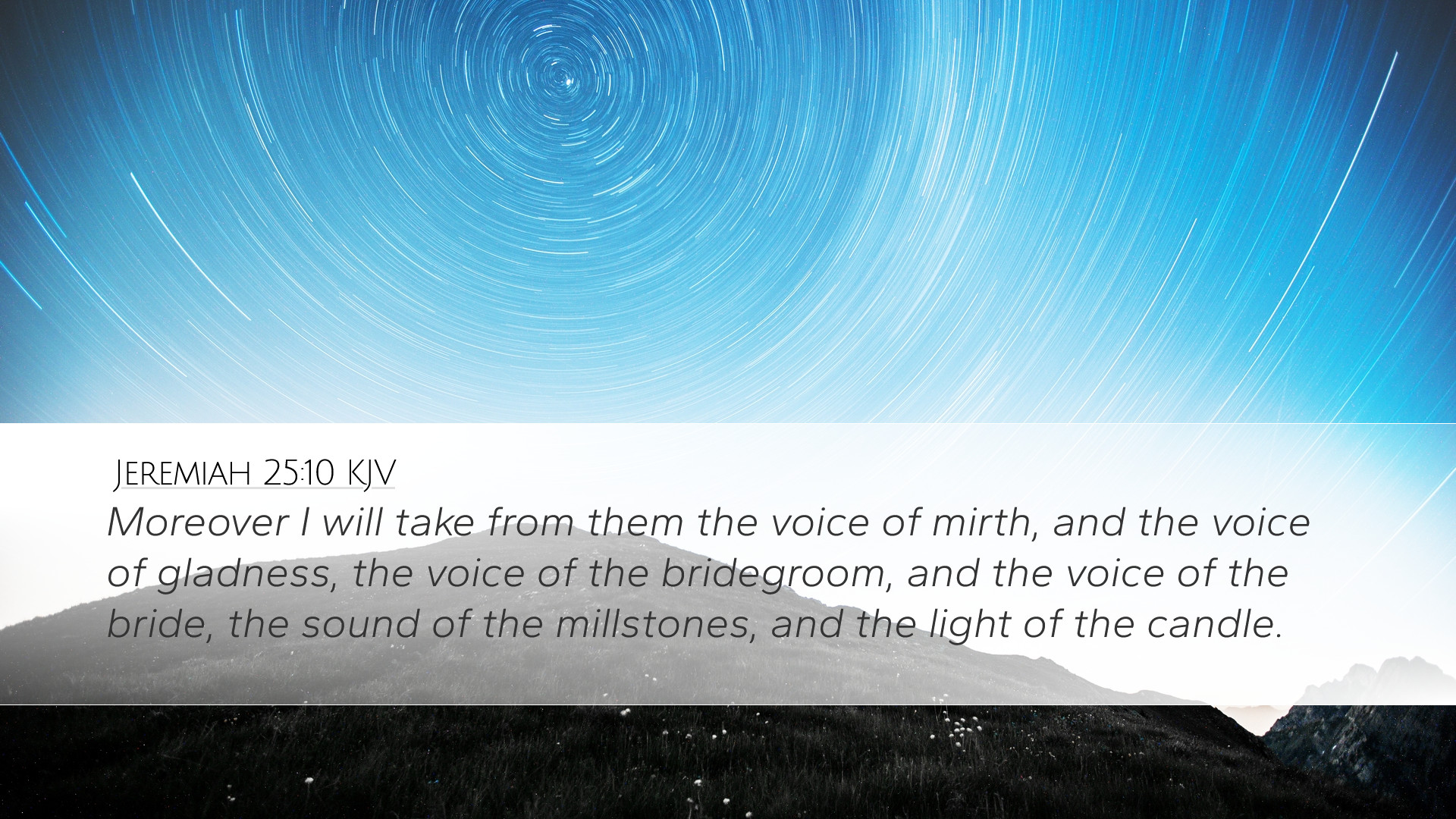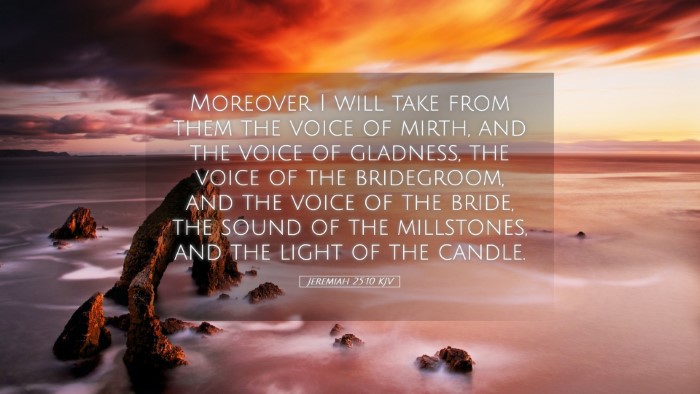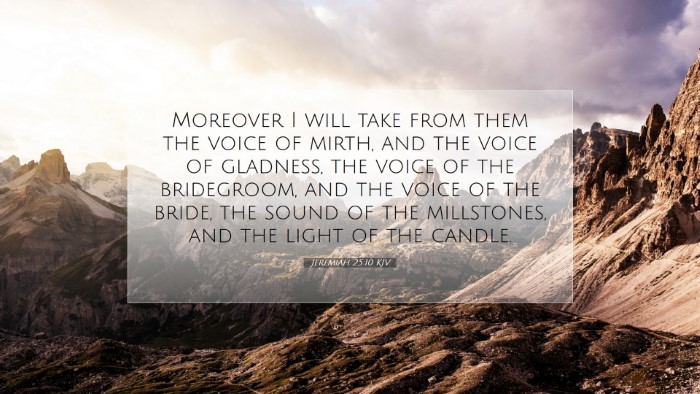Commentary on Jeremiah 25:10
Verse: "Moreover I will take from them the voice of mirth, and the voice of gladness, the voice of the bridegroom, and the voice of the bride, the sound of the millstones, and the light of the candle."
Introduction
This verse from Jeremiah reflects a sobering message of loss and desolation resulting from divine judgment. The prophet Jeremiah often spoke of the impending doom that awaited Judah due to their persistent disobedience and idolatry. Scholars and theologians recognize this passage as an essential revelation of the consequences that come from turning away from God.
Contextual Analysis
To appreciate the depth of Jeremiah 25:10, one must consider the historical context in which Jeremiah prophesied. The nation of Judah was on the brink of destruction, and the Babylonians were poised to conquer them. Jeremiah's prophecies were not merely forecasts of doom; they were calls to repentance and a reminder of God's covenant faithfulness.
Public Domain Commentaries Insights
Matthew Henry
Henry discusses the void that punishment creates in society: the loss of joy and communal celebration. He highlights that the "voice of mirth" and the "voice of gladness" signify the joy of social gatherings and family celebrations. The absence of these sounds indicates the complete desolation that follows judgment. Moreover, he emphasizes that the removal of such joys is a form of divine retribution. When God withdraws His blessings, there is a stark silence where once there was life and vibrancy.
Albert Barnes
Barnes elaborates on the specific elements of joy that will be removed. The "voice of the bridegroom" and the "voice of the bride" symbolize marital joy and the continuation of life. In ancient times, weddings were grand celebrations that brought communities together. Thus, Barnes notes that judgment affects not just individuals, but society as a whole. The cessation of marriages and celebrations symbolizes a community that has lost hope and joy.
Adam Clarke
Clarke offers a more elaborate cultural perspective on the verse. He draws attention to the sounds of the millstones, which represent daily sustenance and economic activity. Without the sound of the millstones, Clarke argues, there would be no food to eat, further underscoring the breadth of desolation that accompanies divine judgment. The extinguishing of the "light of the candle" suggests a loss of knowledge, guidance, and spiritual enlightenment.
Theological Implications
This verse raises profound theological questions about the nature of joy and loss in the context of divine judgment. The removal of joy illustrates a principle seen throughout Scripture: disobedience to God leads to consequences that affect not only the disobedient individual but the entire community. It highlights the communal aspect of sin and judgment and calls for a deeper understanding of repentance and restoration.
Impact on Community
The profound silence left by the absence of joyous celebrations emphasizes the communal destruction that follows rebellion against God. As noted by the commentators, weddings and work were central to daily life, symbolizing life’s continuity and God’s blessings. This calls pastors and church leaders to recognize the importance of fostering a culture of joy and worship within their communities as a reflection of God’s presence.
Calls for Repentance
Scholars assert that the intent behind prophetic warnings such as Jeremiah 25:10 is to urge a return to faithfulness. It is as much a call to repentance as it is a pronouncement of judgment. Pastors and theologians can draw from this to encourage congregations to remain vigilant in their faith practices, ensuring that joy in God is continuously cultivated.
Conclusion
In conclusion, Jeremiah 25:10 serves as a poignant reminder of the consequences of turning away from God. The insights from public domain commentaries by Matthew Henry, Albert Barnes, and Adam Clarke enhance our understanding of the verse, providing historical, cultural, and theological perspectives that are vital for pastors, students, theologians, and scholars. This passage encourages believers to seek the joy of fellowship with God, ensuring that their lives resonate with His presence and celebrate His blessings rather than face the stark silence of divine withdrawal.


